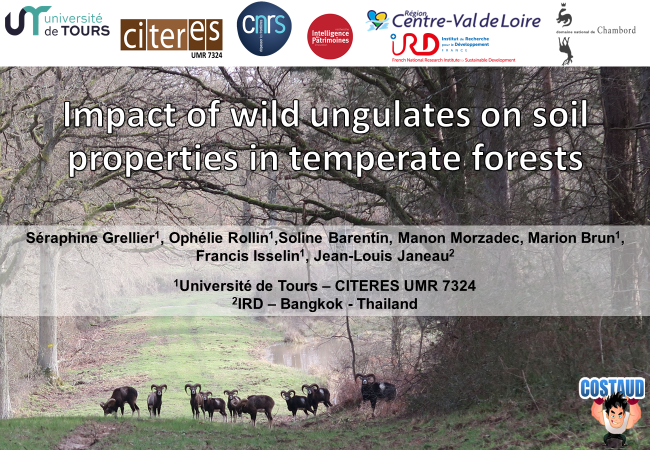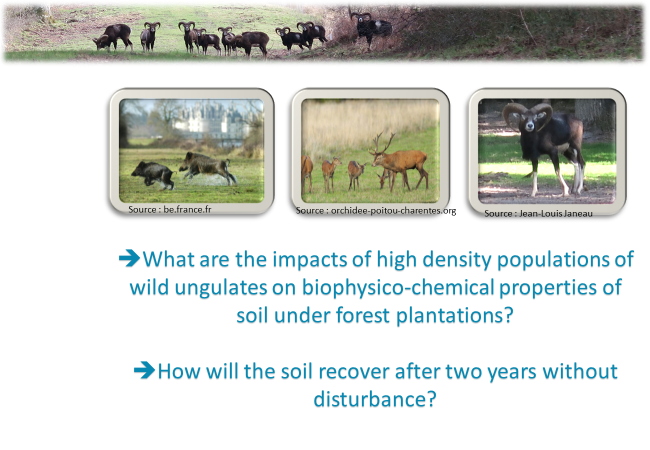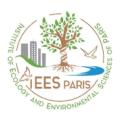Within the COSTAUD project, we have set up a two-year experiment with exclusion
ungulates, under cover of pines (Pinus sylvestris) and oaks (Quercus petrae) within the Estate National de Chambord. This allowed us to measure, in situ and in the laboratory, different properties soil, whether physical (saturated hydraulic conductivity, soil roughness, resistance to penetration, apparent density, moisture, soil texture), chemical (pH, CEC, carbon content total, total nitrogen and exchangeable cations) or biological (soil macrofauna).
We have highlighted certain effects of ungulates on the ground, in particular by a reduction in the macrofauna or even decreases in the soil contents of clay or calcium. We have could also observe differences in soil properties depending on the weather or forest cover.
However, we were unable to observe the impact of wild ungulates on humidity, conductivity hydraulic saturation or roughness, and this two years after disturbance. Reduction rapid soil macrofauna after disturbance is important to note, as this can limit any the long-term soil recovery process.


